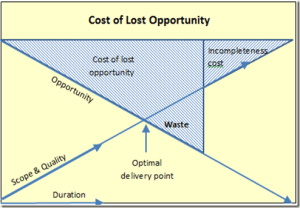
When a businessman is obsessing to me about cost-or price-I know there’s a problem. It’s easy to blame him, and often the problem is him, but it also means we likely didn’t do our job establishing the basis upon which we bring value. Our belief is that our value is measured in what we help to create, not in what our fee is or how many Federal Reserve Notes are required to implement it. We’re focused on the ROI for that number, because no one brags about the cost of a campaign, but only about the EBITDA it generates.

Business is fundamentally a human action that involves risk and the deployment of resources, both in the form of labor and capital. There are not often guaranteed outcomes-although increasingly our society seems to wish there were-and so every decision is fraught with risks, known and unknown. Worse, we are pretty bad at identifying those risks, measuring them, and acknowledging what we don’t know. Even the best executives and proven leaders aren’t very accurate when measured objectively.
So when I hear of a manager worrying about the cost of a marketing or advertising initiative, I know there’s a problem. Accountants worry about costs, leaders plan for outcomes. General U.S. Grant was valued by his Commander in Chief-and ultimately the people of the North-because he cared little for the cost of achieving his objective. The North had for years suffered failure under the inept leadership of fine men, but who were too timid for the task.
It is not the cost of the initiative that matters, but the likely outcome. The cost, if we must overly concern ourselves with it, must include the cost of:
a) doing nothing
b) doing something badly
c) doing something slowly
and the lost opportunity costs that are associated with these steps. Delay, or ‘c’, seems the most common choice of mediocre executives. They neither have to make a decision or admit their inability to do so. Indecisiveness can masquerade as prudence if marinated with time. But with that time comes great cost, including:
a) the lost earnings that could have been achieved
b) what the reinvestment of those earnings would mean
c) the improved competitive position within the market
d) and what that improved position means
e) the psychological edge on the competition, who must evaluate and respond to the campaign
f) the costs on your competition to accomplish ‘e’ and go through the same, painful decision making progress which they are at least as likely to do poorly as our subject
g) the psychological reward for our team, and what that means for performance, retention, etc
And innumerable other lost benefits that, even if only delayed for a short time (although executives always claim it is a short time although this usually is months or years), bring with them considerable costs, not all of which we know or understand at the time.
By all means, be prudent with costs, but don’t allow concern for the details of accounting for the input to distract from the reason we exist in business…to produce something of immense value that solves problems for the world and persuades the world to hand over their hard-earned currency for our product or service.

